For so long, the clothes we wore came prescribed to us by the mores of whatever time and place we happened to live in. Comfort and body positivity didn’t quite figure into this equation. More and more, we’re able to choose clothes that fit our unique bodies and actually feel good.
When Alexis Rheinwald-Jones made the jump from healthcare to fashion, body positivity and comfort were top of mind. She wanted to make everyday clothing for women that actually fit and do it ethically and sustainably.
With The Source, she’s done just that. Using sustainable and ethically sourced fabric, all clothes are made in Los Angeles with fair labor practices.
I talked with Alexis about how she made the decision to switch careers, how her experience in healthcare prepared her for the fashion industry, and whether we can count on some men’s clothes in the future.
Sendle’s small biz quiz
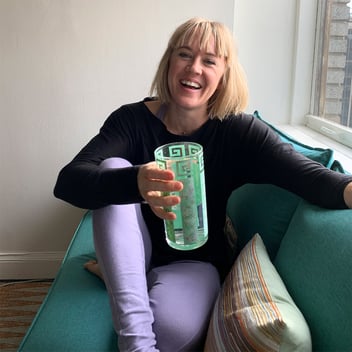
Alexis Rheinwald-Jones
Name, title, and location
Alexis Rheinwald-Jones, Owner | Los Angeles, California
Business
How would you describe The Source in a few sentences?
The Source makes elevated essentials for women’s wardrobes in sizes XS-3X. All our clothing is made sustainably, with fair labor in Los Angeles.
We also curate ethically made accessories, beauty, and home goods from other woman-owned businesses, and we offer those items in our online shop.
Now, in just three words?
Everyday ethical essentials.
How and when did you start The Source? Were you destined to run a business or did the stars just line up?
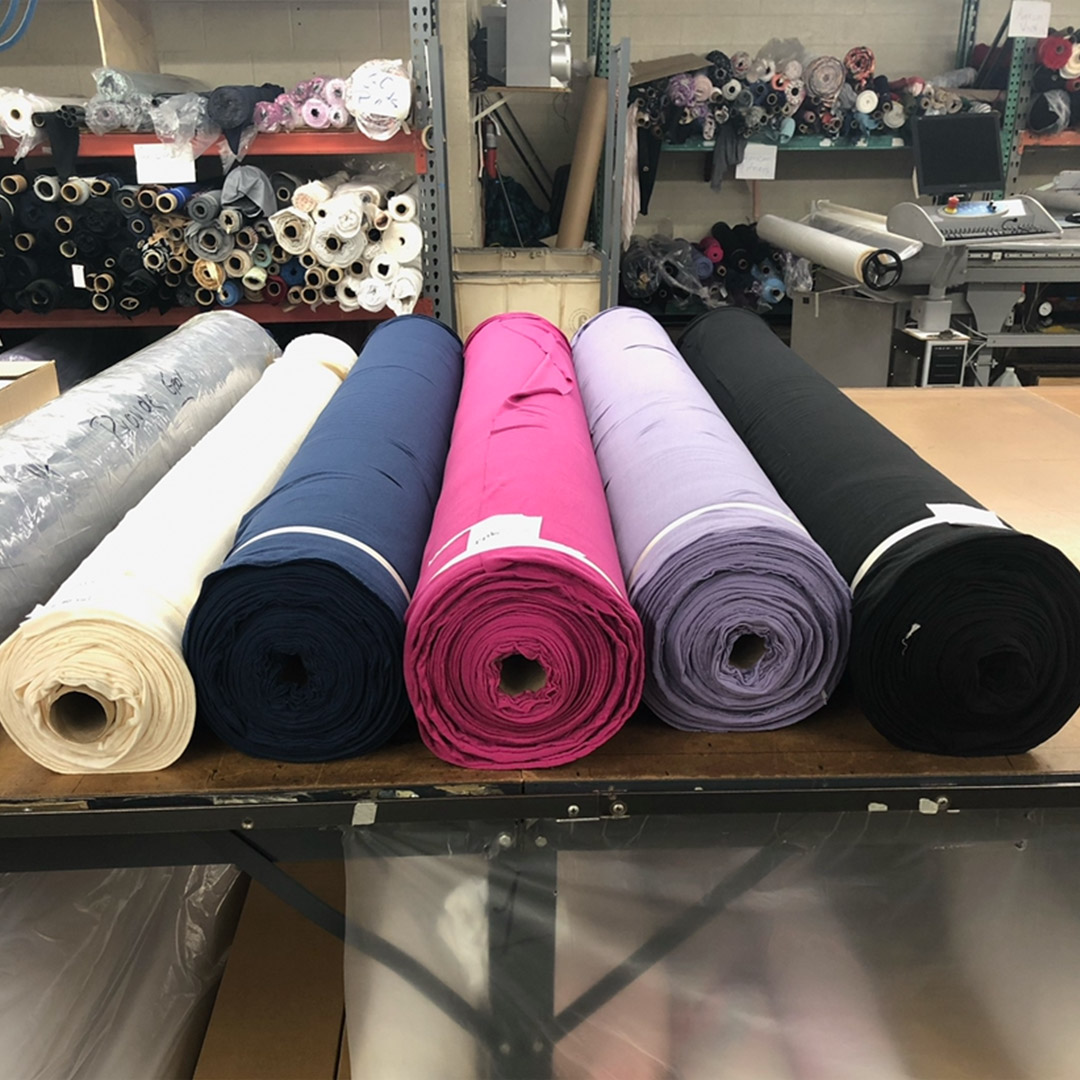
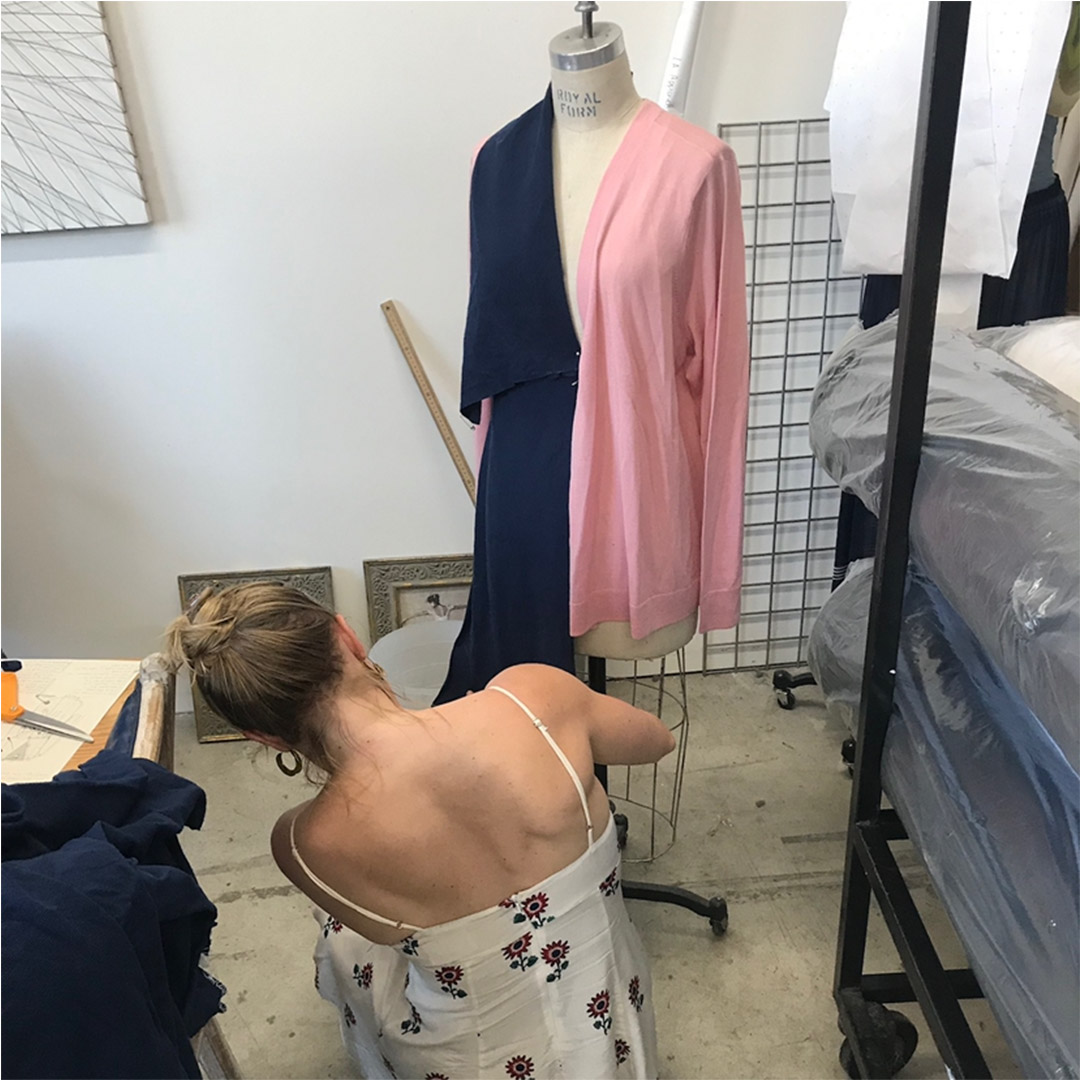
I started working on The Source at the beginning of 2018, only a couple of years after transitioning from a career in healthcare. It was about a year and a half from concept to our launch in July 2019.
On one hand, I can’t really say I’m destined to run a business.
I believe I’m talented at the product part of the business, but everything else involved in running a business is more challenging for me. The same was true for the business I had when I was in healthcare.
On the other hand, I have a lot of passionate ideas about the product I want to make and how I want to go about it.
In that way, running my own business is ideal for me, because I’m able to ensure that what I’m putting out into the world is something I feel great about.
You went from healthcare to fashion. What did you bring with you from one industry to the other?
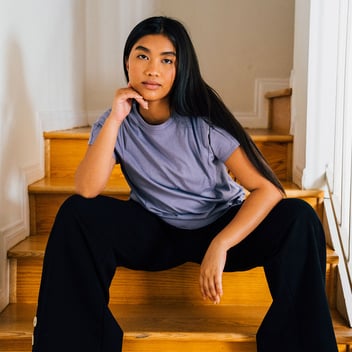
I was in my mid-30s and had been in healthcare for 11 years.
Healthcare was good to me in many ways. But my entire career, I had this “what if” nagging me at the back of my head.
What if I had pursued something more creative—specifically, my lifelong love affair with clothes?
I got to a place in my medical career where, if I wanted to make a change, this would be the time. So I took the leap!
I had seen enough people grapple with death in my work that I knew that there are no guarantees in life and that I didn’t want to look back and regret not taking a chance. So I closed my medical practice and went to fashion school.
There are two important ways my career in medicine informs my work in fashion: empathy and chemistry.
By empathy, I mean compassion for the difficulty of the human experience, and not wanting to add to the world’s suffering.
This is why fair labor is so important to me.
And by chemistry, I mean the impact of industry on human health. I saw first hand in my practice that environmental pollutants directly cause so many types of illness.
Treating patients with these types of health issues made me understand in a new way that what’s good for the planet is good for people.
Knowing that, I couldn’t start a business that didn’t place caring for the Earth front and center.
Was the transition natural or jarring?
Ha! Natural and then jarring, if that makes sense?
For the first couple of years, it just felt great to be in a creative career. I didn’t know how badly I needed that. It felt like a relief!
But as I’ve gotten into the thick of things with The Source, I have moments where I long for healthcare, where to me there’s more of a roadmap, and I have more experience to guide me.
I knew that I’d learn a lot in starting an apparel business…and I didn’t know how it would feel to be on such a steep learning curve so often.
Why did you choose to sell women’s clothing? Were there any other business ideas in the mix?
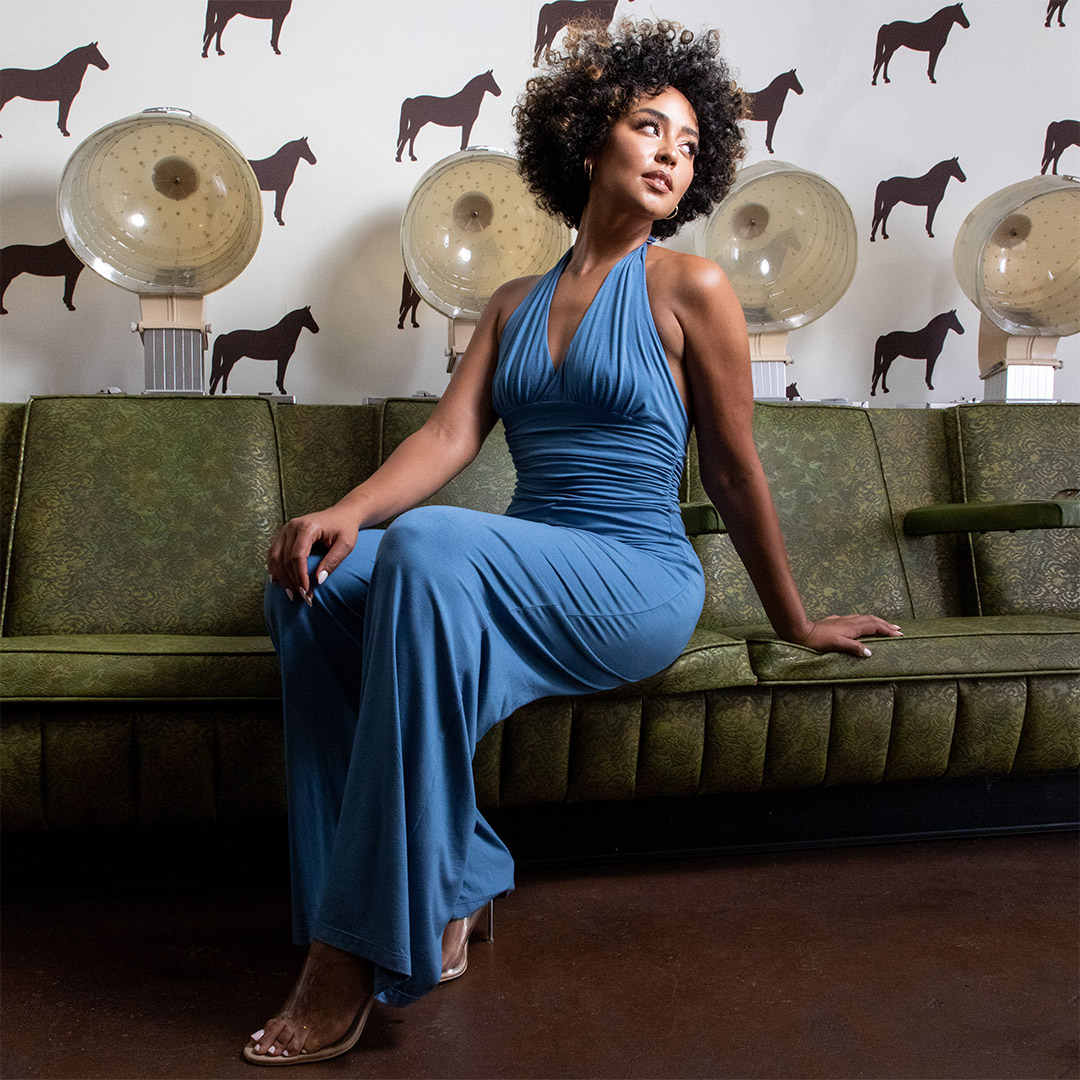
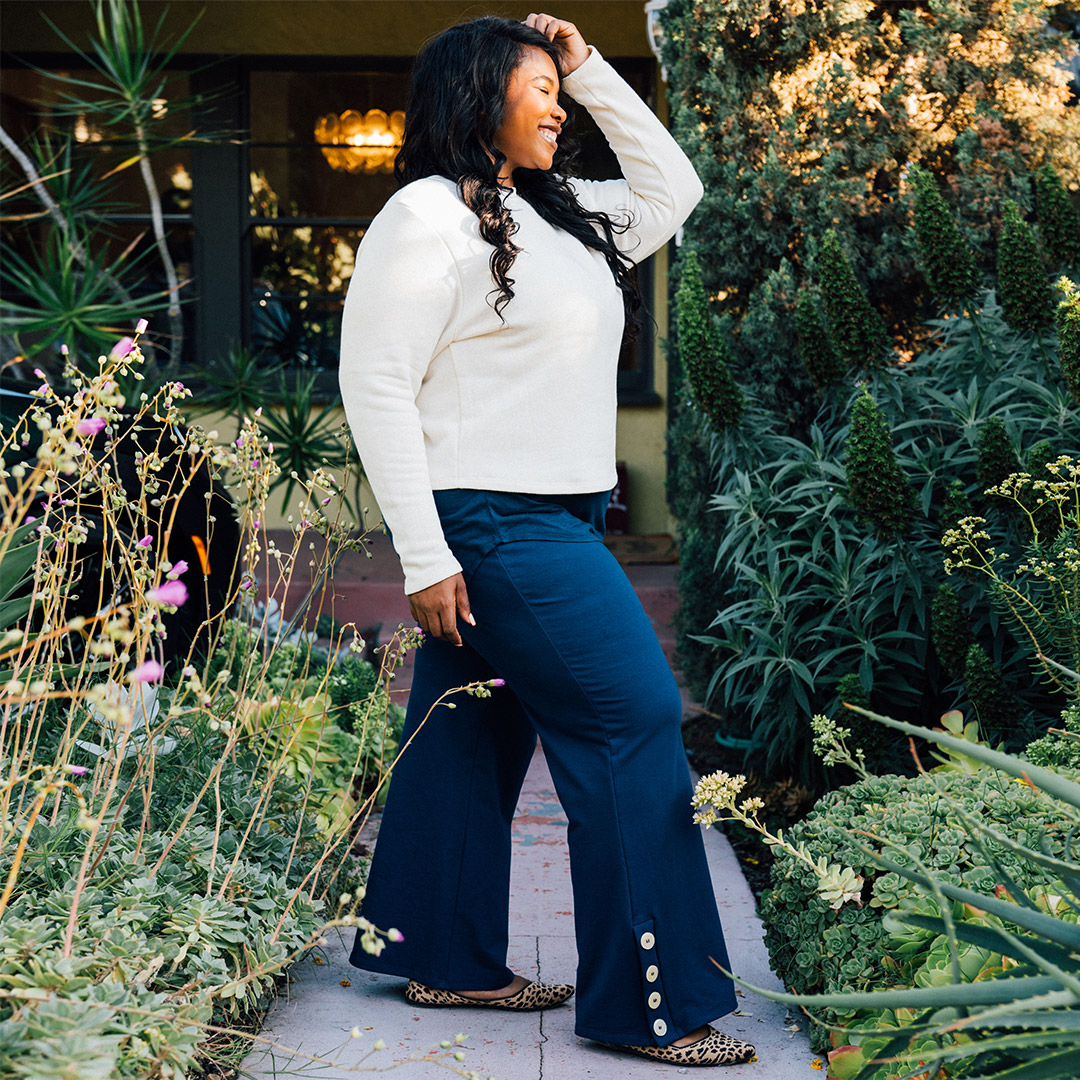
I really didn’t consider anything else because women’s clothing is what I know best! My husband keeps begging me to make men’s clothes, and I’d like to do that at some point down the road.
What sets you apart from your competitors?
I think we do things more ethically than almost anyone in the general marketplace, and often for a similar price tag to unethical brands.
In the conscious/eco-fashion space, I think we offer clothes that are more versatile, covetable, and made to last longer.
Why is it important that you use models that are diverse and inclusive of many body types?
Representation is so important!
I don’t think we can have a message of inclusivity without actually including a wide variety of people in our visual representation of the brand.
Fashion has shown us all more than a lifetime quota of ultra-thin blonde women. That’s not what the world looks like.
And from the design side, making clothes that only fit one very rare body type is lazy.
What brands are doing this well?
The two that come to mind immediately are Girlfriend Collective and Superfit Hero.
Both are great at showcasing a variety of skin tones and body types, and both offer an impressive range of sizes.
Both of these businesses are inspirations to me in terms of their practices around inclusivity. Brands like these help set the bar higher for the rest of the industry, and I'm grateful for that.
Seeing what they do is not only a challenge to do better with inclusivity, it's proof that it can be done, and that the market responds well.
Do you think the tide is turning? Where do you think the industry can do better?
Thank goodness, I do think the tide is starting to turn with this. The body positivity movement needs to be much more widespread in our industry, but it finally has some traction.
I think size inclusivity at many companies, including us, could be better. I hope to expand our size range up to 6X in the future.
A lot of people are having to rethink their workout routines during the COVID pandemic. What advice do you have for people to keep motivated and keep it moving?
Honestly, I’d say do that if it feels nourishing to you. But if it doesn’t, then don’t!
We have so many expectations and demands placed on us in normal times, let alone in the roller coaster of 2020.
It’s okay to decide that something isn’t a priority for you at any given time.
I’m not saying don’t care for your health; I’m saying maybe you need a nap or good cry or a chat with a friend more than you need a workout some days, and that’s beautiful.
I do believe movement can be very nourishing and therapeutic, and if that’s in your toolkit, I’d encourage you to choose something that brings gratification and balance.
What does self-care mean to you? How can the clothing you wear or the product you use impact that?
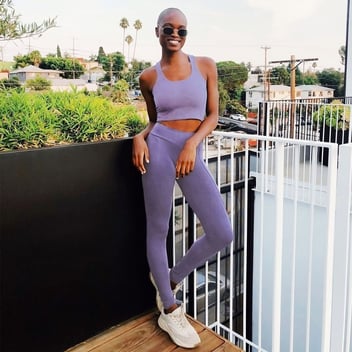
Self-care is about being in tune with and honoring your internal state.
The more you tune in to your body’s own cues, the more you realize there are so many small ways to be kind to yourself.
I think of this all the time when I’m designing—simple things like whether a piece will dig into someone’s skin in an uncomfortable way. I try to design pieces that women will love not only for how they look, but how they feel.
Self-care can simply mean choosing a pair of leggings that doesn’t pinch you at the waist so that you have one less irritating thing to deal with in your day.
I’ve heard this described as stopping “energy leaks”. I love that concept.
When you approach self-care in this way, there are so many ways to apply it in your life.
What does it mean to be a good business? How do ethics and sustainability play out in your business?
Haha! The first thought that ran through my head was “it makes everything harder”.
Industry is set up for profit, not necessarily for doing good. That’s not to say it’s not possible though, and at the end of the day, I’d rather sleep well, knowing that my business is doing the right thing.
Being a good business means asking a lot of questions to a lot of people.
You have to keep searching until you find the right people who can help you do things the right way. It takes a lot of stamina.
I really try to practice my ethics in ways that aren’t publicly visible, too.
I work with woman- and BIPOC-owned businesses whenever possible. I really try to avoid excess waste by doing things like saving fabric scraps and minimizing packing in our offices.
It can be tiring to always be trying to do better. It’s really important to surround yourself with like-minded people who can remind you why you’re doing what you do.
What are some of your favorite small businesses?
I’m drooling over the bags at Tesoro Leather and will probably buy myself one for Christmas this year.
I think Apothenne does the best home fragrances bar-none and I’m burning their candles pretty much all day every day in quarantine.
I am obsessed with the smart, fun Zoom classes at Fit & Bendy since the stay-at-home orders started.
I buy everything I can from No Tox Life and Verdant Wild Apothecary for my personal use because I think their products are brilliant.
And I’d be lost without the cherished neighborhood restaurants that feed and caffeinate me multiple times per week: Go Get ‘Em Tiger, All Time, and Mixto Comida Latina.
What is your favorite thing to listen to when working?
I often avoid listening to anything, even music without lyrics, because I can find it distracting.
Sometimes I’ll listen to a classical creativity playlist to help keep my energy up. I am a huge podcast fan, and I relish when I’m able to listen to them when I work, but I can usually only do that when I’m sewing.
What’s your favorite thing to do to relax?
I try to have a lot of tools at my disposal to help me unwind. This lets me take care of myself no matter what mood or level of motivation I’m dealing with.
Lately, I’ve been enjoying a lot of jigsaw puzzles—they put me in this pleasant trance-like state. I also am appreciating my meditation practice and long soaks in a hot tub with a good book.
How did you go from a company just starting out to a brand that people know and love? What has your marketing strategy been to get in front of your target audience?
I’d say we’re still in the process, to be honest.
But the thing that’s gotten us the most movement has been to collaborate with other brands that are a little farther along in their journey.
There’s a platform called DojoMojo that has been a complete revelation in terms of helping us connect with other brands to get ourselves more visibility.
For us, getting people into our email funnel has been the most effective thing so far.
Do you have any advice for someone just starting out with their small business? Anything you wished you would have known before or stumbled upon while getting started?
Wow. Yes. A million things.
But also: if I’d known all those things that could be difficult, I never would have started.
I could write a mile-long list of all the things to beware of about marketing, budgeting, hiring people, getting swindled by contractors, the daily operations of an e-commerce brand.
So while I do have a lot of admonitions, I’m cautious about putting too much emphasis on them. Because at some point, you just have to start.
You'll have some challenges, and hopefully some luck too. I think a lot of the people who succeed in business are the ones who simply stick with it.
If I had to pick out the one thing I wish I’d done differently, it would have been to start on my marketing earlier in the process of developing the company.
I focused on making the product almost entirely for the first year and half, and it can be disheartening to “launch” before having much of an audience. It ended up feeling kind of anticlimactic.
You’re not doomed by any means if you do it this way, but you have to tolerate what it feels like to pour your heart and soul into something and not have many people to show it to once it’s finished.
If I could go back in time, I would set things up differently early on to spare myself that experience.
How did you find Sendle?
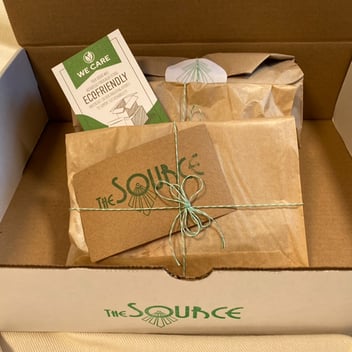
An Instagram ad!
I was already working on figuring out how to make our shipping carbon neutral when I came across Sendle, so I was thrilled to have such a simple, cost-effective solution to that.
How is Sendle working out for you?
Great! It’s so simple, the prices are very fair, and the customer support is amazing.
As an entrepreneur, you’re constantly dealing with challenges, and the things that are lucky breaks in my business always stand out in my mind.
Finding Sendle early in the life of The Source was definitely one of those!
Photos courtesy: The Source

